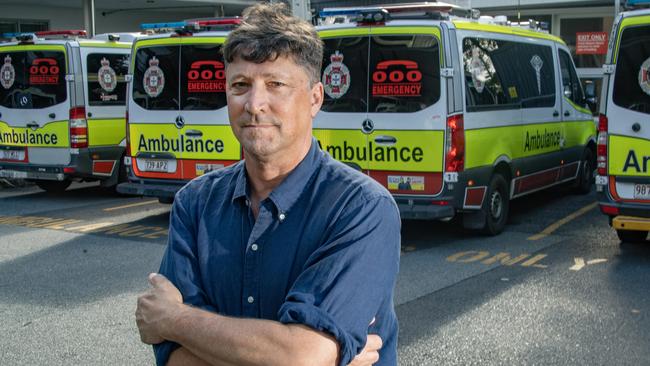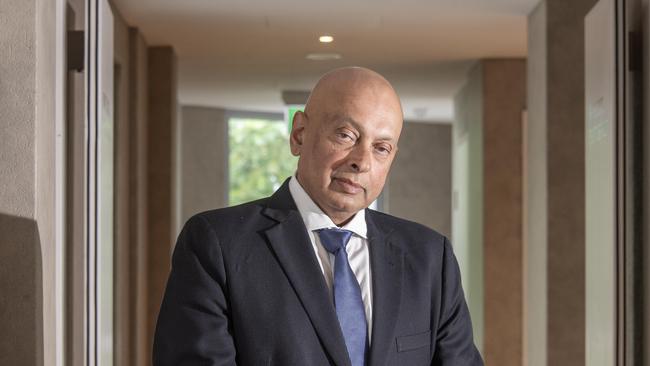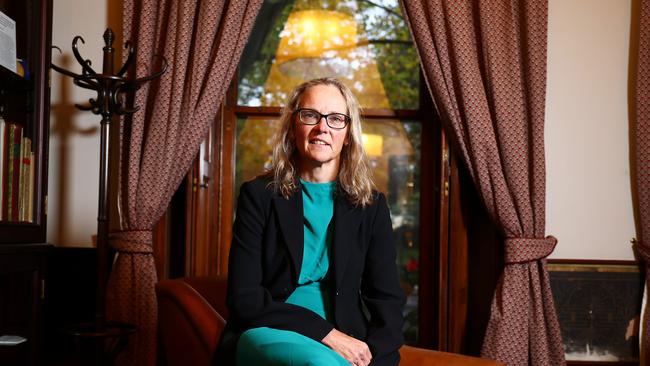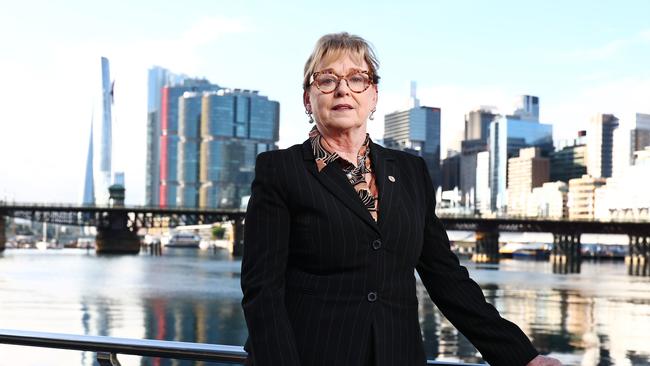Medical colleges warn of health system breakdown in face of ‘bureaucracy gone mad’
The heads of Australia’s medical colleges are warning our public health systems face a dire future of chronic understaffing, unmanageable workloads and critical threats to patient safety unless bureaucratic overreach is overhauled.

The heads of Australia’s medical colleges are warning our public health systems face a dire future of chronic understaffing, unmanageable workloads and critical threats to patient safety unless bureaucratic overreach is overhauled in favour of proper clinical practice.
The call by the specialist medical college chiefs reflects the magnitude of alarm among clinical leaders at the direction of Australia’s health policy, which across multiple policy fronts is downgrading clinical expertise amid pernicious workplace cultures in hospitals that are seeing an exodus of registrars and senior clinicians from public systems.
Doctors across the gamut of specialties are describing what they say is a profound disconnect between health administrators and clinicians, who are frequently subject to reprisals or hostility if they attempt to raise patient safety concerns or improve systems.
Frontline clinicians who have spoken to The Australian say that many administrators are obsessed with meeting government-set targets – for the likes of elective surgeries and emergency department waiting times – instead of delivering the best care to patients.
The chair of the Council of Presidents of Australia’s Medical Colleges has warned that Australia’s globally top-ranked patient safety status in hospitals is at risk of being lost because clinical expertise and leadership are being disregarded and ignored in favour of politically driven imperatives designed to Band-Aid over widespread dysfunction in the delivery of care.
“We see in failed private companies that when key performance indicators are set with a short-term view, they lead to catastrophic consequences,” clinical professor Sanjay Jeganathan said. “Around the country, we are seeing KPIs in healthcare set with a view to largely wanting a political outcome, for the public to see that there are quick perceived wins being made.
“Whereas when you look at it more closely, the failures in Australia’s healthcare systems are being papered over, and the pursuit of these politically driven measures or outcomes are leading to larger and longer-term problems.

“Really, in each and every jurisdiction around the country that I’m looking at, there is only one source of truth that is being spoken to the politicians, and that is the health bureaucrats. The health bureaucrats are the ones who feed the information to the political masters. And there is no other alternative view that is being heard or listened to.”
Dr Jeganathan’s comments have been backed by the heads of Australia’s most influential individual specialist medical colleges, including the Royal Australasian College of Surgeons, the Australian and New Zealand College of Anaesthetists and the Royal Australasian College of Physicians.
The colleges are registering a high level of concern at the issues documented in The Australian’s Life Support series, which is laying bare dysfunctional cultures and administration in public hospitals, triggering unprecedented dissent among clinicians, who are warning of systems breakdowns and a growing flight of skilled staff.
Doctors across the gamut of specialties are describing what they say is a profound disconnect between health administrators and clinicians, who are frequently subject to reprisals or hostility if they attempt to raise patient safety concerns or improve systems.

The medical colleges say the situation is so acute that public hospitals are struggling to hold on to as many as one in five registrars they have trained. Some are leaving medicine entirely.
“These doctors are Australia’s next generation,” said Jennifer Martin, president of the Royal Australasian College of Physicians. “To see these doctors that we’ve actually trained and who are so committed to healthcare leaving, is something I’ve never seen before. These colleagues have spent many years training and working long hours and they just can’t imagine that it’s going to be an enjoyable career when they get to be seniors anymore, that’s what people say to me.
“I’ve also never seen senior clinicians leaving the workforce before at the rate we are currently seeing.”
State and territory health ministers are facing a perfect storm of spiralling demand and rising health system costs.
Rather than investing in nurturing a long-term healthcare workforce, they are taking politically expedient shortcuts at every turn, with task-shifting and importing doctors from countries that can scarcely afford to lose them.
The core of the malaise facing public hospitals nationwide is not just the pressures of an ageing population and chronic disease, it is also the rise of administration cultures that have become a force unto themselves.
At the same time, government-led scope-of-practice creep is seeing other professions take over some of the roles of doctors with far less training, while the colleges are being stripped of stewardship of professional standards, including among overseas-trained doctors who are now subject to expedited pathways.
The colleges emphasise they want to work with governments on shoring up long-term health system sustainability.
The Royal Australasian College of Surgeons is now calling on governments to “immediately engage in genuine negotiations … to address the critical issues facing the NSW Health surgical workforce”. It comes as a three-day strike action – the likes of which hasn’t been seen in decades – recently rocked NSW, which has also lost scores of its psychiatry staff specialist workforce, who reached such a point of despair they walked away en masse from the public system.
RACS is asking for a recognition of the importance of clinically led governance, with senior medics meaningfully involved in the highest levels of planning and auditing of surgical care.
“Our surgeons are dedicated to providing the highest standard of care for patients across
NSW Health public hospitals,” said outgoing RACS president Kerin Fielding, an orthopaedic surgeon in rural Wagga Wagga in central western NSW. “However, they cannot continue to do so under the current conditions.

“The system has become very bureaucratic. I think that what’s happened is a bit of, dare I say, bureaucracy gone mad. We are increasingly seeing instances of bureaucratic overreach and planning without senior clinician collaboration escalating during the past year.
“This has significantly affected surgeon work practices, surgical workforce wellbeing, surgical training experiences and patient care.
“It has also resulted in resignations and industrial action across multiple jurisdictions, with well-publicised issues in the ACT and NSW, culminating in actions such as the recent strikes.
“The industrial action reflects the consequences of chronic understaffing, unmanageable workloads and poor working conditions across NSW public hospitals, placing increasing pressure on surgeons and ultimately jeopardising patient safety and care.
“We absolutely want to be part of the solution because, frankly, if we’re not part of it, our members will just leave the public system. The majority of training occurs in the public hospitals ... without us, it would cost governments multiple millions of dollars to support training in Australia, and if we don’t turn these trends around soon, we’ll be in dire straits.”
A recent national survey by the Australian Salaried Medical Officers Federation revealed the country was on the verge of a widespread exodus of medicos from public systems.
Associate Professor Fielding described the issues playing out in NSW as a boilover of trends that were occurring in public hospitals around the country.
“The situation is very serious,” she said. “This is really a call to arms that we should work together – the system is under threat.”
The ASMOF survey found that only about 40 per cent of more than 700 doctors surveyed said they intended to stay working in public hospitals nationwide within the next five years.
Only 6 per cent of specialists said administrators managed hospital budgets in line with clinical need, and about a third would not feel comfortable to report patient safety or clinical concerns. Half of all specialists said they had been subjected to retribution or reprisals after reporting concerns.
Almost a quarter said administrators were “highly disrespectful” towards clinicians. Doctors believed management did not understand the frontline work of doctors, rarely listened, and mostly only engaged in token gestures towards staff wellbeing and safe staffing. They said administrators “weaponised the complaints processes” routinely.
The first signs of staff flight from the system by surgeons who had expected to spend their whole career in public hospitals are already being seen. As many as 20 per cent of all registrars do not stay in the public system, or in medicine at all, after finishing their training.
Australia and New Zealand College of Anaesthetists president David Story said doctors’ status was being “downgraded” by governments across multiple domains. Management cultures in public hospitals and health ministries at the same time become “toxic” and characterised by “anti-doctor sentiment”.
Professor Story, a staff anaesthetist at the Austin Hospital in Melbourne and Foundation Chair of Anaesthesia at the University of Melbourne, said the situation in psychiatry in NSW was ultimately a tragedy for patients.
“As one of my anaesthesia colleagues has said: What’s happening to the suicide rate in NSW?’,” Professor Story said. “If you want to look at a dreadful metric, it’s probably going to be that.”





To join the conversation, please log in. Don't have an account? Register
Join the conversation, you are commenting as Logout